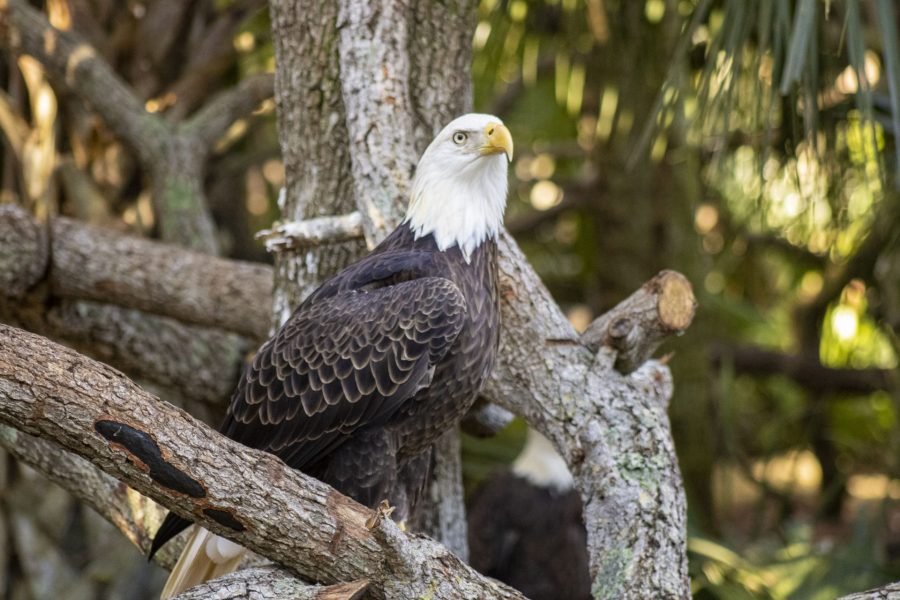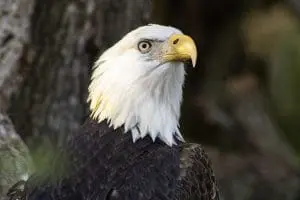

Our bald eagles are great reminders that there is hope for endangered species.
This Save the Eagles Day, January 10, we wanted to introduce you to the two bald eagles who call our Zoo home: 16-year-old male Kane and 10-year-old female Crowbar. Both are non-releasable due to injuries sustained before arriving at our Zoo.
 Named for his discovery in a sugarcane field, Kane was hit with a bullet that shattered the bones in his left wing and sent metal fragments into his chest and trachea. Kane pulled through a five-month rehabilitation process and joined the Zoo family in July 2008. When compared to Crowbar, Kane is more calm and cautious when approaching his keepers, said Marc Franzen, the area supervisor of our Wild Florida loop.
Named for his discovery in a sugarcane field, Kane was hit with a bullet that shattered the bones in his left wing and sent metal fragments into his chest and trachea. Kane pulled through a five-month rehabilitation process and joined the Zoo family in July 2008. When compared to Crowbar, Kane is more calm and cautious when approaching his keepers, said Marc Franzen, the area supervisor of our Wild Florida loop.
Crowbar was brought to the Clinic for the Rehabilitation of Wildlife (CROW) in Sanibel, Florida to be treated for a leg injury and moved to the Zoo in August 2012. Crowbar is very vocal, especially when keepers are around.
At the Zoo, our eagles eat a variety of meat including fish, rat, quail, mice, rabbit and chicken – with rabbit and rats being their favorites. In their native range, eagles are opportunists that will prey on whatever meat they can find, including carrion, Marc said. Because they are well adapted for fishing, bald eagles are most commonly seen in areas with plenty of water and fish.
Kane and Crowbar interact most with diverse types of substrate (sticks, pine needles, hay etc.). They also show lots of interest in enrichments that involve their food, Marc said.
Bald eagles are an amazing conservation success story. Over the last 50 years, they went from being threatened from extinction to no longer needing protection from the Endangered Species Act, thanks to a concerted effort to fix the causes of their threats: habitat destruction and degradation, illegal shooting and the contamination of eagles’ food from the pesticide DDT.
“Bald eagles are a good reminder that there is hope for endangered animals today if humans are willing to put in the effort to make change,” Marc said. “Constantly being aware of our impact on the environment will continue to ensure that bald eagle populations remain healthy.”
Brevard Zoo is an independent, not-for-profit organization that receives no recurring government funding for our operating costs. Your generous support enables us to continue to serve our community and continue our vital animal wellness, education and conservation programs.